2025.04.24
Contributing to the Promotion of Circular Economy – High-Level 12th Regional 3R and Circular Economy Forum in Asia and the Pacific –
On 3-5 March 2025, High-Level 12th Regional 3R and Circular Economy Forum in Asia and the Pacific was held in Jaipur City, India. The forum brought together approximately 1,000 participants including senior government officials, development partners and international organizations, scientific institutions, the private sector, NGOs and other stakeholders from 30 Asian and Pacific island countries, aiming to share information on systems and technologies that contribute to the promotion of 3R –reduce, reuse and recycle – and circular economy in the Asia-Pacific region and promote high-level dialogue. Lively discussions were held on the theme of realizing a circular society toward achieving SDGs and carbon neutrality. The forum also adopted the “Jaipur Declaration on 3R and Circular Economy,” which sets goals for achieving sound material cycle and resilient circular economy in Asia and the Pacific for the 10-year period from 2025 to 2035.
Members of the OECC worked with the relevant organizations hosting the forum to support its operation and also organized two side events hosted by the Ministry of the Environment, Japan: “Accelerating Circular Society: Expansion and Reproducibility of Municipal Achievements in 3R and Circular Economy” and “Decarbonization Technologies in the Waste and Resources Sector for Realizing a Circular Economy.” We also supported the international exhibition held at the same time and played a role in building a network between India and Japan.
High-Level 12th Regional 3R and Circular Economy Forum in Asia and the Pacific
The Regional 3R and Circular Economy Forum in Asia and the Pacific was established in November 2009 at the proposal of the Ministry of the Environment of Japan as a platform for cooperation among a wide range of stakeholders, including Asian central governments, international organizations, aid agencies, the private sector entities, research institutes, and NGOs, for building a circular society through the promotion of 3R in Asian countries. Since its inception in Tokyo as the Regional 3R Forum, 11 meetings have been held so far, and from the 10th meeting held in 2020 the Forum has been renamed to add “Circular Economy” to the its name. The Forum aims to promote high-level policy dialogue on 3R and circular economy, promoting support for the implementation of 3R projects in each country, sharing information on systems and 3R technologies and networking among stakeholders.
At the 12th meeting hosted by the Republic of India, which was organized by the Ministry of the Environment of Japan (MOEJ), the Ministry of Housing and Urban Affairs (MoHUA) of the Government of India, the United Nations Centre for Regional Development (UNCRD), the United Nations Department of Economic and Social Affairs (UN DESA), and the United Nations Economic and Social Commission for Asia and the Pacific (ESCAP), active discussions were held to realize a circular society toward achieving the SDGs and carbon neutrality in the Asia-Pacific region. In addition, the “Jaipur Declaration on 3R and Circular Economy” was adopted, which sets goals for promoting 3R and circular economy for the 10-year period from 2025 to 2035, as the successor to the “Hanoi Declaration on 3R” (2013-2023) adopted in 2013.
Various side events and an international exhibition contributing to the promotion of the 3Rs and circular economy were presented at the venue, attracting many participants.
Side events: Accelerating the circular economy and decarbonization technologies in the waste resource sector
The side event on “Accelerating Circular Society: Expansion and Reproducibility of Municipal Achievements in 3R and Circular Economy” highlighted on the role of local governments in realizing innovative solutions to urban challenges in realizing the 3Rs and circular economy. The initiatives and achievements of cities and local governments were shared and the participants engaged in in-depth discussion on the factors behind the successful cases.
Some local governments have marked significant progress in creating a circular economy through innovative policies and practical initiatives in waste reduction, resource efficiency, and decarbonization, and these success models provide valuable insights into how cities and municipalities can lead the transition to a circular economy. To facilitate adoption and replicability in other cities, the recycling efforts of Osaki Town, Kagoshima Prefecture, and various circular economy initiatives implemented by Kopernik, an Indonesia-based community support company, were introduced in the first session of the side event, as case examples of accelerating the transition to a circular economy through policy, technology, and community engagement.
In the subsequent panel discussion, participants from Osaki Town, Kopernik, UN-Habitat, UNIDO, Rajasthan State Pollution Control Board, and Jaipur Municipal Government actively discussed the current situation, challenges, and efforts regarding waste management from their respective perspectives, as well as the promotion of a circular economy. The discussion highlighted the importance of adapting solutions to local characteristics rather than taking a copy-and-paste approach, and to achieve this, it was underscored that sharing case studies, collaboration, and promotion of partnerships would be essential.
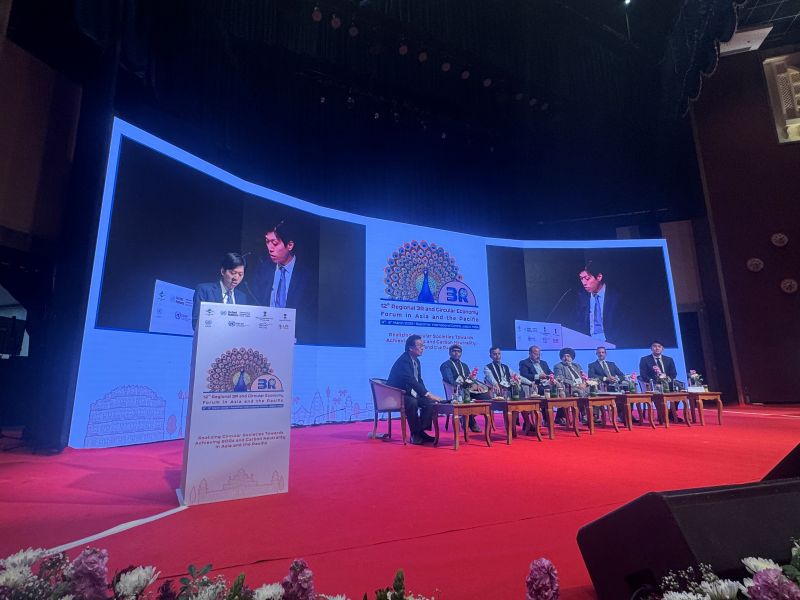
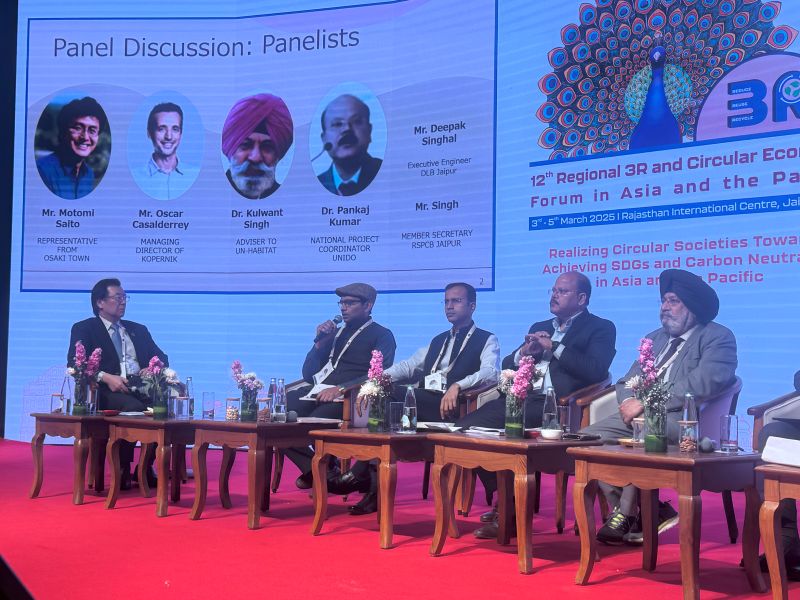
In the side event on “Decarbonization Technologies in the Waste and Resources Sector for Realizing a Circular Economy,” the latest initiatives on waste treatment and energy recovery/utilization aimed at achieving net-zero emissions and a circular economy were presented based on Japan’s experience.
In Japan, the amount of urban waste increased rapidly with the postwar economic development and the concentration of population in cities, and the deterioration of public health became a major social issue. In order to sanitarily treat and reduce waste, the introduction of waste incineration facilities was promoted in each city, and innovative landfill methods were developed and introduced. In recent years, the introduction of waste-to-energy systems has progressed, making a significant contribution to the formation of a recycling-oriented society that ensures the implementation of the 3Rs and proper treatment.
At this side event, Japanese companies introduced a wide range of technologies and experiences, including waste-to-energy, incineration heat utilization technology, CCUS, landfill construction method (Fukuoka method), septic tanks, sewage sludge treatment and solid fuel production, and comprehensive consulting on waste management. In this opportunity, we were able to demonstrate that the technology and experience cultivated in Japan are world-class and will certainly contribute to solving the problems faced by India and many other countries and cities.
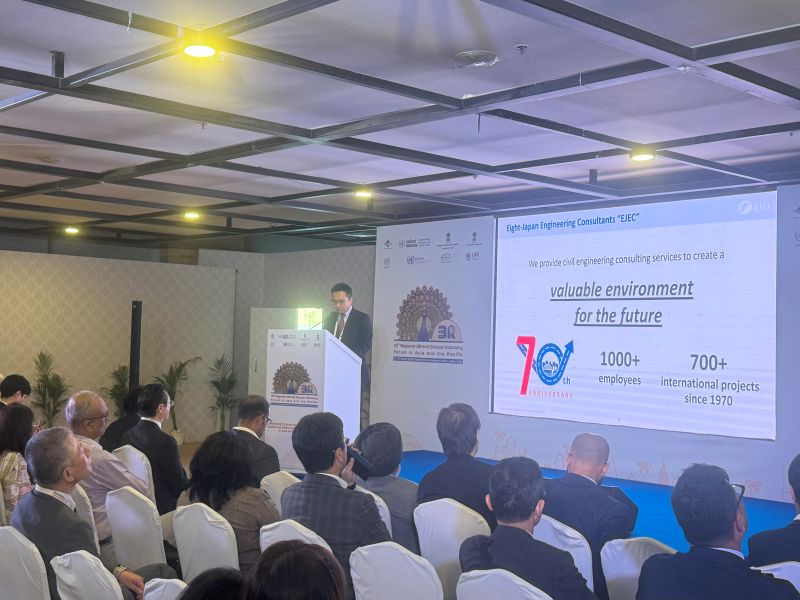
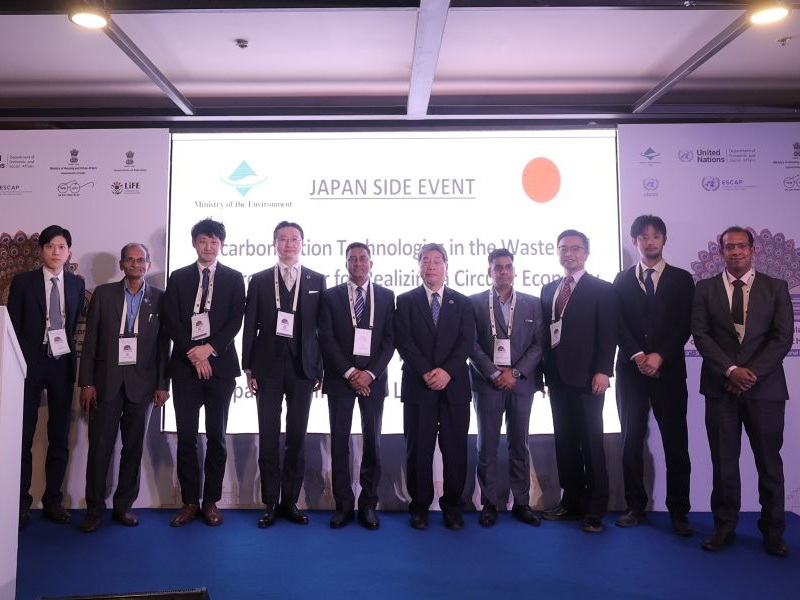
Hosting of international exhibition and participation of Japanese companies
The 12th forum featured an international exhibition in the field of resource recycling in cooperation with the Indian government, where Japanese companies with technologies in waste power generation, septic tanks, and measurement and monitoring exhibited their products. While The notable dignitaries in India toured the exhibition venue, the Japanese companies had the opportunity to directly introduce their technologies and activities at their booths.
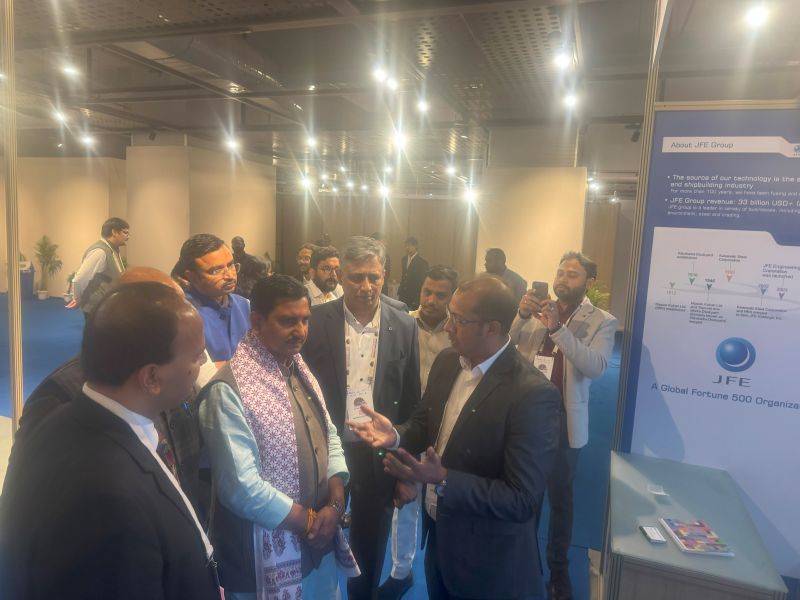
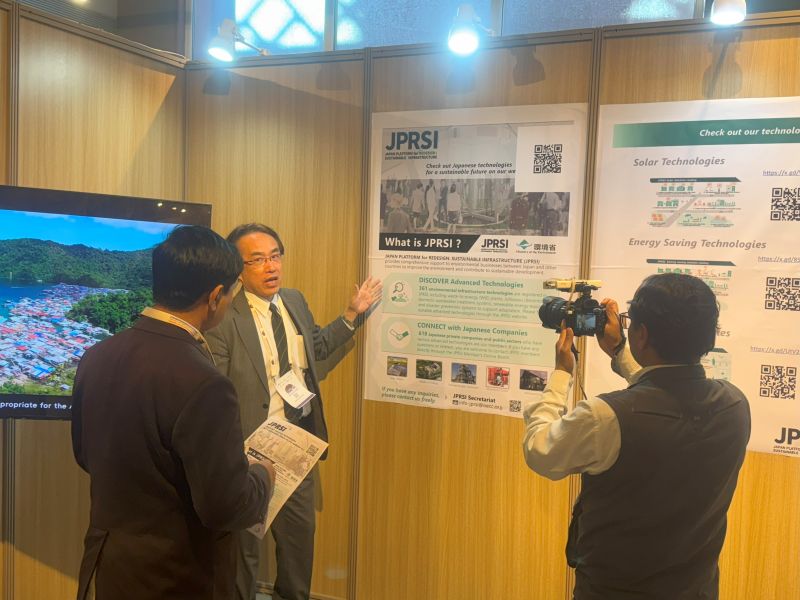
Conclusion
Through this mission, we were able to see that Indian government’s proactive development of measures, such as the banning of single-use plastic products has helped to foster public understanding and awareness and has led to significant progress in efforts to replace and recycle plastic. At the same time, we saw a high potential for collaboration and cooperation in the future, as sanitation issues associated with landfill waste and the future challenges of recycling solar panels are brought up to discussion, together with very high expectations for Japanese government and companies. The OECC will continue our efforts in contributing as a bridge to promote joint efforts between the public and the private sectors in the field of 3R and circular economy.


